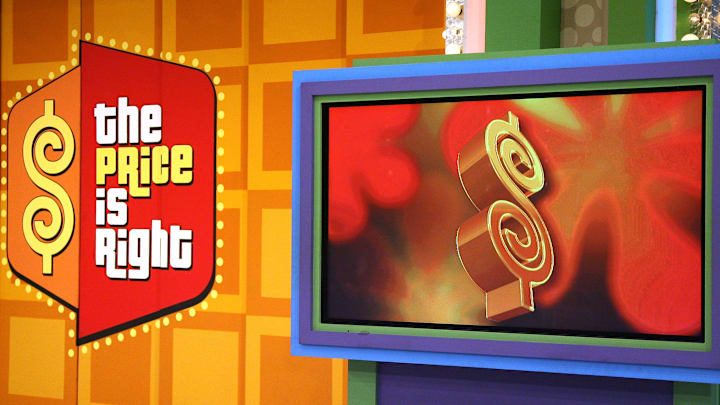If you’ve ever waded deep into the waters of daytime television, you’ve probably seen some very excitable contestants win some very expensive prizes on The Price is Right, the popular CBS game show that’s been airing nonstop since 1972. (Earlier versions aired from 1956 to 1965.) Winners of individual games and the climactic Showcase Showdown can take home everything from camping tents to vacation packages to a $120,000 Aston Martin car.
Collecting those prizes, however, is another story.
Since The Price is Right did not respond to multiple requests for comment, we reached out to Aurora De Lucia, a Los Angeles native who appeared on a March 2013 episode and wound up scoring a 2013 Chevy Cruze LS. “I viewed [winning] as a great way to make money,” she tells mental_floss. “But I was still excited to win a car because that seems like such a Price is Right thing that I'd dreamed of since I was a little girl.”
After making it on stage by coming closest to guessing the retail price of a set of four DXG camcorders (valued at $1260), De Lucia played the Money Game and nailed the correct cost of the Chevy: $19,652.
After commenting on the win (“Aieeee! Ahhhh!” “Oh, My Gah-weeee!”), De Lucia was hustled backstage. “There’s a little winners’ room where we sign all our paperwork,” she says. In addition to committing to paying sales tax on the car, De Lucia agreed that if she disclosed the results of the show prior to airtime, she would forfeit any prizes owed.
As with most non-motorized prizes, the camcorders were shipped directly to De Lucia's home from the vendor; the car was picked up from a local dealership a few weeks after taping, though contestants from out of state typically need to wait while producers contact a dealer close to them. (The show’s paperwork, De Lucia says, stipulates they have 90 days to make arrangements, with the winner given 10 days to collect the vehicle once they’ve been notified it’s available.)
Before she could drive the Chevy off the lot, she paid the dealership $2067 in sales tax. All winners on the show are expected to pay the tax amount owed prior to taking possession of their prize. Because game show loot is considered income, De Lucia also had to pay federal tax, which fluctuates anywhere from 10 to 39.6 percent, depending on your income bracket; California also took their 8 percent cut for income tax (which also varies).
Long math equation short: De Lucia forked over in the neighborhood of $9000 in federal, state, and sales tax for a car worth roughly $20,000. Since she viewed it as more of a cash prize and had no intention of keeping it, she quickly sold it for roughly $14,800, leaving her with close to $6000 in actual winnings, not accounting for any end-of-year deductions. (She was taxed on the retail, not resale, value of the Chevy.)
Was it still worthwhile? “I think it's slightly silly to complain about netting many thousands of dollars for one day of work, which is ultimately super crazy fun,” she says. “But I also think that sometimes people can be a little in the face of game show winners if the winners mention taxes at all. And it's like, well, this is kind of a legit problem that you do have to think about, especially if you want to keep the car.”
The camcorders, however, were free of any tax burden. “I donated those to charity,” she says.
